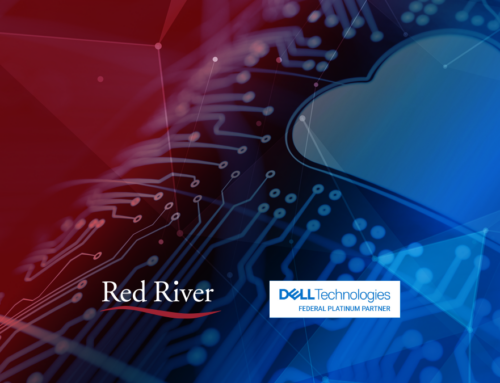
What Does “Cloud Managed Services” Even Mean?
You may have heard a lot about cloud managed services—for example, that the industry is going to be worth $116.2 billion by 2025. Cloud managed services are a very swiftly expanding industry, but that doesn’t explain what the managed cloud is and what it entails.
Today, we’re going to be taking a deeper look at what cloud managed services are, what the benefits of such a service could be and why you should consider cloud computing managed services for your own infrastructure.
What is “Cloud Managed Services”?
We all know what the cloud is: a series of applications and infrastructure deployments hosted across a cloud of server banks. But what is a cloud managed service? A cloud managed service, sometimes called a cloud-based managed service, is an application, service or ecosystem on the cloud that is managed by a third-party organization. This third-party organization may handle all of the management of the service or only a little.
A fully managed cloud service would have updates, upgrades and help desk ticketing all managed through a third party. Meanwhile, a partially managed cloud service might just have critical issues managed by a third party. Either way, with managed services for the cloud, the management is outsourced, and the organization must do much less to maintain and operate the system.
What are the Benefits of Cloud Managed Services?
Why are so many organizations switching to a managed services cloud? There are a multitude of benefits for a cloud managed service:
- Low infrastructure costs. Rather than having to purchase and replace physical servers, you can instead take advantage of cloud solutions. This takes a significant amount of the burden off of your organization. Not only do you not have to purchase physical servers, but you also don’t need to pay someone to manage, maintain and deploy them.
- Better pricing models. Many cloud managed services operate on a flat rate—or can give you a ballpark figure regarding costs. With on-premises solutions, you may never know when the solutions are going to need to be repaired or replaced. Thus, most managed cloud solutions can give you better, static pricing models.
- Inherent scalability. If your organization has to scale quickly, it only needs to pay for the additional resources that it consumes. Your organization doesn’t have to purchase more expensive equipment. Managed cloud systems can deploy additional resources on an as-needed basis.
- Inherent elasticity. Because cloud solutions can deploy additional resources on an as-needed basis, organizations are also able to scale down as desired. If an organization had to purchase multiple servers to keep up with needs, it would have to spend that money—even if that need swiftly dissipated.
- Future-proofed technology. You don’t need to ever worry about having to upgrade a cloud managed service. Instead, you have completely future-proofed technology that will update itself and improve itself over time. In fact, your organization’s contract rates may not even be tethered to these improvements.
- Disaster recovery support. Today, disasters can occur at any time. Whether it’s a ransomware attack or a physical flood, data can be lost. But disaster recovery support ensures that all your data is properly backed up and synced and can be quickly re-deployed. This reduces not only the chances for a major disaster and data loss but also system-wide disruption as data is recovered.
- Improved availability and resource management. When a physical server doesn’t have enough resources, it has to be physically modified. But with a cloud managed service, new resources can always be deployed, and availability and responsiveness can always be improved.
- Better security. In addition to disaster recovery support, cloud managed services can provide better security. A cloud managed service can monitor your organization 24/7 for suspicious activity and can deploy cloud resources to protect your organization’s data.
And even these aren’t all of the benefits. Many companies turn toward cloud managed services because they no longer want to hire and train internal IT teams—or they want to be able to pursue other disruptive or revenue-generating tasks with their internal IT team. With cloud managed services, organizations are able to focus on doing business rather than trying to manage their technology.
What Should You Look for in Cloud Managed Services?

There are many cloud managed services available. It depends on the solutions that you need and how much control you want over your own infrastructure. Some things to consider are:
- How transparent is the pricing? Could the pricing change dramatically based on the contract, or is it a flat rate?
- What is the service level agreement? How much downtime could you potentially experience?
- What do they handle? Do you need them to handle all your backups and your help desk ticketing?
- Who will be my major contact? Having a point-of-contact set can be incredibly beneficial.
- What’s your response time? A managed service will need to be able to respond quickly to issues such as threats.
- Can they scale? If you want them to handle more later on, will they be able to? Or will you need to find another service?
Some organizations would prefer to have limited managed services because they want to maintain complete control over their ecosystem. Other organizations would prefer to have an all-in-one, comprehensive managed service because they don’t want to have to update or control their ecosystem.
It depends on the organization and its goals. Luckily, cloud solutions are extremely flexible, and an organization can maintain (or cede) as much control as is desired.
In short: Cloud managed services can actually mean a lot of things. Some organizations have their entire infrastructure on the cloud (Infrastructure-as-a-Service). Other organizations have specific suites, such as CRM solutions (Salesforce on the cloud). Cloud-based managed services usually refer to the complete infrastructure of an organization—but they can also refer to a single system in that infrastructure.
Regardless, managed services are usually better services. Getting a cloud managed service means that you don’t need to worry about your own network infrastructure or application management. Everything is handled for you by a team of expert professionals with in-depth knowledge about your solutions.
So, what are cloud managed services? An excellent opportunity to upgrade your technology without increasing your administrative burden. Contact us today to find out more.

written by
Corrin Jones
Corrin Jones is the Director of Digital Demand Generation. With over ten years of experience, she specializes in creating content and executing campaigns to drive growth and revenue. Connect with Corrin on LinkedIn.




